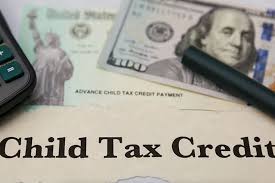Child Tax Credit Extended for Another Year which was expanded and made fully refundable as part of the American Rescue Plan Act of 2021, has been extended for another year. The credit will now be available through 2023, at the same rates and with the same eligibility requirements as it was in 2022.
The child tax credit is a refundable tax credit that can be claimed for each qualifying child under the age of 18. The credit is worth up to $3,000 per child for children under the age of six, and up to $2,500 per child for children ages six to 17. For 2023, the credit will be fully refundable, meaning that even families with no income will be able to claim it.
The child tax credit is a significant financial benefit for many families. In 2022, the average family with two children under the age of six received a tax credit of $2,000. This tax credit helped to lift millions of children out of poverty and put more money in the pockets of working families.
The extension of the child tax credit is a welcome development for families across the country. The credit will provide much-needed financial relief to families with children, and it will help to boost the economy.
Here are some of the key benefits of the child tax credit:
- Reduces child poverty. The child tax credit is one of the most effective anti-poverty programs in the United States. In 2022, the credit lifted 3.7 million children out of poverty.
- Increases economic security for working families. The child tax credit provides much-needed financial relief to working families. In 2022, the credit put an average of $2,000 per year into the pockets of families with two children under the age of six.
- Boosts the economy. The child tax credit is a stimulus for the economy. When families have more money to spend, they spend it on goods and services, which helps to create jobs and grow the economy.
- [the_ad id=”238″]
The child tax credit is a vital program that helps to support children and families. The extension of the credit is a positive development for the country.
In addition to the extension of the child tax credit, there have been a number of other developments related to the credit in recent months. In March, the Internal Revenue Service (IRS) began sending out monthly payments to eligible families. These payments are half of the total credit that families are eligible for, and they will continue to be sent out until the end of the year.
The IRS has also made it easier for families to claim the child tax credit. In the past, families had to file a tax return in order to claim the credit. However, under the American Rescue Plan Act, families can now claim the credit even if they do not file a tax return. This change has made the credit more accessible to low-income families.
The child tax credit is a significant policy change that has the potential to improve the lives of millions of children and families. The extension of the credit and the changes made to the credit by the American Rescue Plan Act are positive developments that will help to make the credit more effective and accessible.
However, the expanded Child Tax Credit is not without its critics and concerns. Some argue that the monthly payments could create a disincentive for individuals to seek employment or work fewer hours, as the credit is not tied to employment or income requirements. Critics also raise concerns about the potential for errors and fraud in the administration of the credit, highlighting the importance of robust oversight and verification processes.
Another aspect of the Child Tax Credit news is the debate around its permanency. The enhanced credit and advance monthly payments are currently set to expire at the end of 2021. There are ongoing discussions among lawmakers about the possibility of extending or making the expanded credit permanent, with supporters advocating for its continuation to provide ongoing support for families and reduce child poverty in the long term.
President Joe Biden has expressed support for extending the enhanced Child Tax Credit beyond 2021. As part of his American Families Plan, he proposed extending the expanded credit through 2025 and making it permanently fully refundable. However, the fate of these proposals ultimately depends on congressional action and the legislative process.
In conclusion, the Child Tax Credit has been making headlines as a result of recent updates and enhancements. The expanded credit, along with the introduction of monthly advance payments, has the potential to alleviate child poverty and provide crucial financial assistance to millions of families. While there are ongoing debates and discussions about the program’s effectiveness, potential challenges, and its future beyond 2021, the Child Tax Credit remains a key policy tool aimed at supporting families and improving the well-being of children across the United States.

